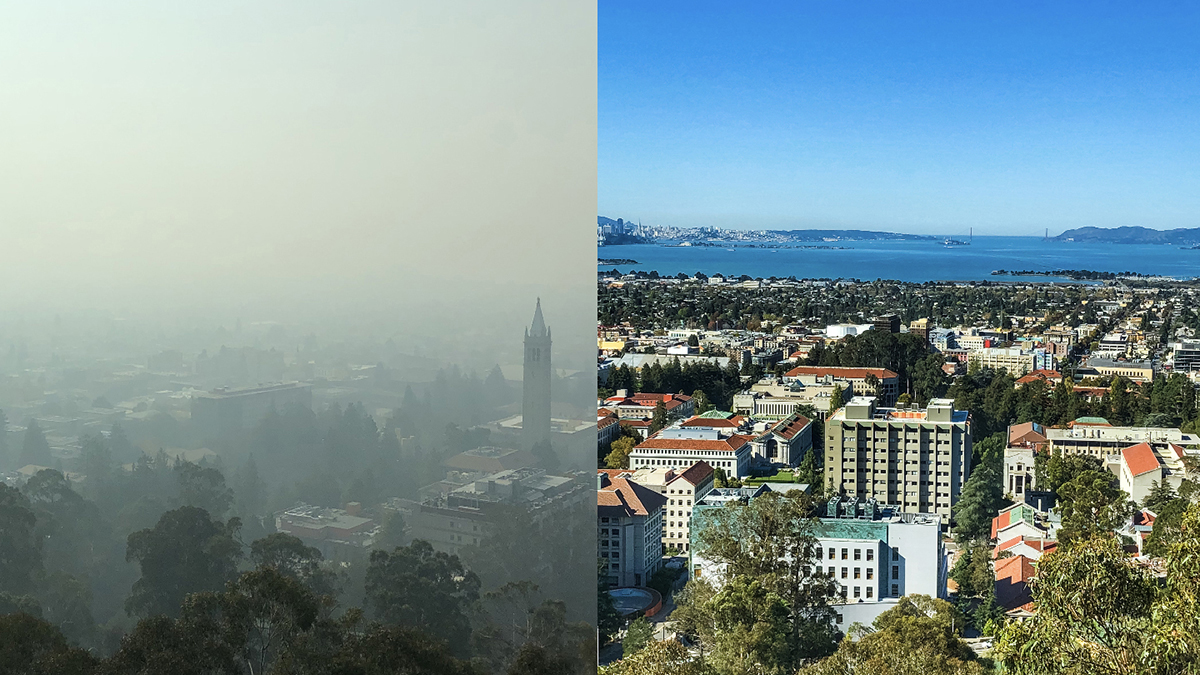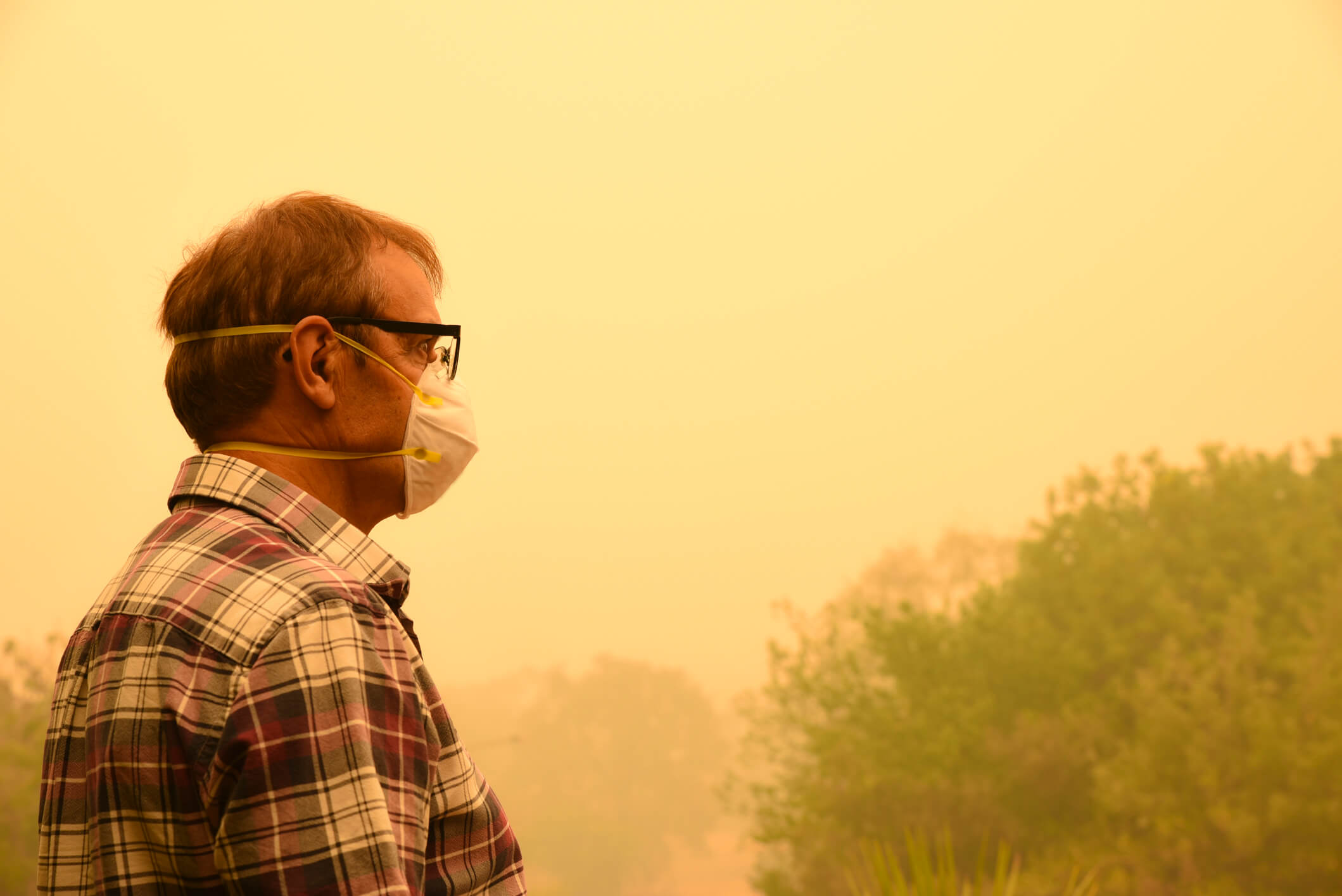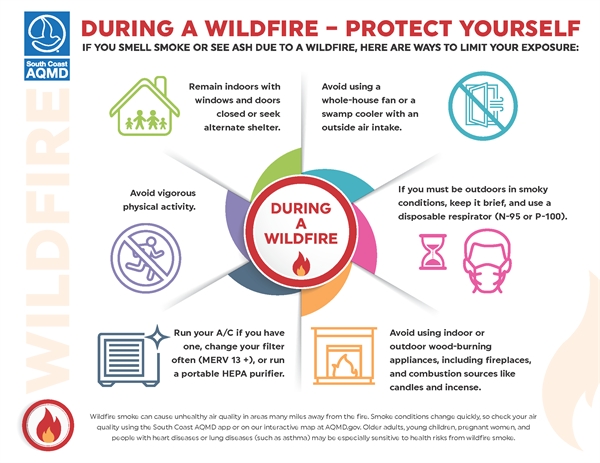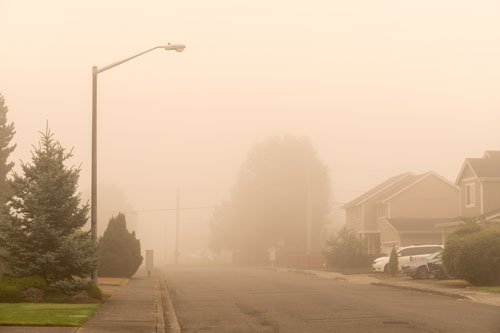To improve air quality in homes during wildfire season, start by sealing windows and doors. Use air purifiers with HEPA filters, and avoid burning candles or using aerosol sprays.
Wildfires can wreak havoc on air quality. They release harmful particles that can easily infiltrate homes. Breathing in this polluted air can lead to health issues, especially for vulnerable individuals. It’s crucial to take proactive steps to keep indoor air as clean as possible.
Simple actions can make a big difference. This article will guide you on effective methods to improve air quality in your home during wildfire season. By following these steps, you can help protect your family’s health and breathe easier.

Credit: cbe.berkeley.edu
Impact Of Wildfires On Indoor Air Quality
Wildfires can significantly degrade indoor air quality, posing health risks. Improve air quality by using air purifiers and sealing windows and doors. Regularly check and replace HVAC filters.
Wildfires can drastically reduce indoor air quality. Smoke and ash from wildfires enter homes through windows, doors, and vents. These particles linger in the air, posing serious health risks. Understanding the impact of wildfires on indoor air quality helps you take action.Health Risks
Exposure to wildfire smoke is harmful. It can cause respiratory issues, such as coughing, wheezing, and shortness of breath. People with asthma or other lung diseases face greater risks. Long-term exposure can even lead to chronic respiratory conditions. Wildfire smoke can also irritate eyes, nose, and throat. Some may experience headaches, dizziness, or fatigue. Protecting indoor air quality is crucial for health.Common Pollutants
Wildfire smoke contains many harmful pollutants. Particulate matter, or PM2.5, is a major concern. These tiny particles penetrate deep into the lungs. Carbon monoxide is another dangerous pollutant. It reduces oxygen in the blood and can be deadly. Volatile organic compounds (VOCs) are also present in wildfire smoke. They can cause a range of health problems, from headaches to liver damage. Keeping these pollutants out of your home is essential. “`Identifying Poor Indoor Air Quality
Wildfire season can severely impact indoor air quality. Identifying poor indoor air quality is crucial. This helps in taking timely action to protect your health. Recognizing the signs and using the right tools can make a difference.
Signs To Look For
First, notice any unusual odors. A smoky or burning smell can indicate poor air quality. Next, check for visible smoke or haze inside your home. These signs are often the most apparent. Additionally, watch for physical symptoms.
If you or your family members experience headaches, dizziness, or eye irritation, these could be related to indoor air quality. Allergies or asthma may worsen. These health issues often arise during wildfire season. Look for increased dust on surfaces. This may indicate poor air quality.
Using Air Quality Monitors
Air quality monitors can help you keep track of indoor air conditions. These devices measure pollutants like PM2.5 and VOCs. PM2.5 are tiny particles that can penetrate your lungs. VOCs are volatile organic compounds. Both can be harmful.
Place monitors in different rooms for accurate readings. Check the monitor’s display or app for air quality levels. If levels are high, take action. Use air purifiers and keep windows closed. This helps maintain better indoor air quality. Regularly monitor the readings to stay informed.
Sealing Your Home Against Smoke
During wildfire season, smoke can invade your home and harm the air quality. Sealing your home properly can help keep the smoke out. This section provides practical tips on how to achieve this. Focus on windows, doors, and ventilation systems to protect your living space.
Windows And Doors
Windows and doors are common entry points for smoke. Ensure they are tightly closed and sealed. Use weather stripping around the edges. Caulk any gaps around window frames. Consider using draft stoppers at the bottom of doors. Heavy curtains can also help block smoke. Keep them drawn to add an extra layer of protection.
Ventilation Systems
Ventilation systems can draw smoke inside if not managed properly. Check your HVAC system for any leaks. Use high-efficiency filters to trap smoke particles. Change these filters more frequently during wildfire season. Close external vents to prevent smoke from entering. Portable air purifiers with HEPA filters can also improve indoor air quality. Place them in the rooms you use the most.
Using Air Purifiers
During wildfire season, indoor air quality can become a big concern. Smoke and pollutants from wildfires can easily enter your home, causing health issues. One effective way to combat this is by using air purifiers. Air purifiers can help reduce the amount of harmful particles in the air, making it safer to breathe.
Types Of Air Purifiers
There are several types of air purifiers available. Each has its own benefits. Here are the most common ones:
- HEPA Filters: These are highly effective at trapping small particles like smoke, dust, and pollen.
- Activated Carbon Filters: These filters absorb odors and gases, making them great for smoke.
- UV-C Light Air Purifiers: These use ultraviolet light to kill bacteria and viruses.
- Ionic Air Purifiers: These release ions that attach to particles, causing them to fall out of the air.
Placement And Maintenance
The placement of your air purifier is crucial for its effectiveness. Here are some tips:
- Place the purifier in the room you use the most.
- Keep it away from walls and furniture to allow for better air flow.
- Ensure the air intake and outlet are not blocked.
Maintenance is also key to keeping your air purifier working well. Follow these steps:
- Check the filters regularly. Replace them as recommended by the manufacturer.
- Clean the pre-filters to remove large particles.
- Wipe down the exterior to remove dust and dirt.
- Ensure the purifier is running continuously during wildfire season for best results.
By choosing the right air purifier and maintaining it properly, you can significantly improve the air quality in your home during wildfire season.
Creating A Clean Room
During wildfire season, indoor air quality can drop significantly. Creating a clean room can help. This space can protect you from smoke and other pollutants. Here’s how to set up a clean room in your home.
Choosing The Right Room
First, pick a room with few windows and doors. This helps keep smoke out. Ideally, the room should be small. Smaller spaces are easier to keep clean. Consider a bedroom or a study.
| Room Feature | Why It’s Important |
|---|---|
| Few windows | Reduces entry points for smoke |
| Small size | Easier to keep clean |
| Close to bathroom | Convenience for prolonged stays |
Necessary Supplies
Gather essential supplies for your clean room. You will need:
- An air purifier with a HEPA filter
- Sealing materials like tape and plastic sheeting
- Wet towels to cover gaps under doors
- Face masks
- Water and snacks
Use the air purifier continuously. It should run 24/7. Seal windows and doors with tape and plastic sheeting. Cover gaps under doors with wet towels. This stops smoke from entering the room.
Keep face masks handy. Drink plenty of water and have snacks available. This ensures comfort during long stays in the clean room.
Setting up a clean room can greatly improve air quality in your home during wildfire season. Follow these steps to create a safe and comfortable space.
Maintaining Hvac Systems
During wildfire season, maintaining your HVAC system can significantly improve indoor air quality. Proper upkeep ensures that your system runs efficiently and filters out harmful particles. Here are some crucial steps to follow:
Filter Replacement
Replacing HVAC filters regularly is essential. Wildfires release a lot of smoke and debris into the air, which your HVAC system will try to filter. Over time, these filters can become clogged, reducing their effectiveness.
- Check filters every month during wildfire season.
- Use high-efficiency particulate air (HEPA) filters. They capture smaller particles.
- Replace filters as needed. Usually, it’s every 30-60 days.
| Filter Type | Replacement Frequency |
|---|---|
| Standard Filters | Monthly |
| HEPA Filters | Every 3 months |
Regular Maintenance
Regular maintenance of your HVAC system is crucial. It ensures that the system operates efficiently and effectively.
- Schedule professional inspections at least twice a year.
- Keep outdoor units clean. Remove debris and leaves.
- Check for leaks in ducts. Sealing them prevents loss of clean air.
Regular tune-ups help identify issues early. Addressing them can prevent costly repairs and keep the air clean during wildfire season.
Reducing Indoor Pollutants
Wildfire season can significantly affect indoor air quality. Taking steps to reduce indoor pollutants is crucial. This helps maintain a healthy environment inside your home. Below are some practical tips to achieve this.
Avoiding Certain Activities
During wildfire season, avoid activities that can worsen indoor air quality. Do not burn candles or incense. These can release harmful particles into the air. Avoid smoking indoors. Tobacco smoke contains many pollutants. Try not to use your fireplace, as it can also add to indoor pollution.
Using Natural Cleaners
Many household cleaners contain harsh chemicals. These can add to indoor air pollution. Opt for natural cleaners instead. Vinegar and baking soda are effective and safe. Essential oils can also help freshen the air. They do so without adding harmful pollutants.

Credit: www.monarchhomeexperts.com
Monitoring Outdoor Air Quality
Wildfire season can bring harmful particles into the air, affecting our health. Monitoring outdoor air quality is crucial to keep your family safe. Knowing the air quality helps you make informed decisions about outdoor activities.
Reliable Sources
Use reliable sources to check air quality levels. Trusted websites and apps provide accurate information. Here are some reliable sources:
- AirNow.gov: Offers real-time air quality updates across the United States.
- EPA’s Air Quality Index (AQI): Shows daily air quality forecasts and current pollution levels.
- Local news websites: Often provide air quality updates during wildfire season.
Timing Outdoor Activities
Plan outdoor activities based on air quality levels. Avoid outdoor exercise when air quality is poor. Protect your health by staying indoors during high pollution days.
| Air Quality Level | Recommendation |
|---|---|
| Good (0-50 AQI) | Safe for outdoor activities. |
| Moderate (51-100 AQI) | Okay for most people, sensitive groups should limit time outside. |
| Unhealthy (101-150 AQI) | Sensitive groups should avoid outdoor activities. |
| Very Unhealthy (151-200 AQI) | Everyone should limit outdoor activities. |
| Hazardous (201+ AQI) | Stay indoors and avoid any outdoor activities. |
Follow these guidelines to protect your health during wildfire season. Monitoring outdoor air quality is essential for a safe home environment.

Credit: www.aqmd.gov
Frequently Asked Questions
How Can I Improve Indoor Air Quality During Wildfires?
To improve indoor air quality during wildfires, keep windows and doors closed. Use air purifiers with HEPA filters. Avoid using candles or fireplaces. Seal any gaps where outdoor air might enter.
What Are The Best Air Purifiers For Wildfire Smoke?
The best air purifiers for wildfire smoke have HEPA filters. Look for models with activated carbon filters. These can remove smoke particles and odors effectively.
Should I Use Air Conditioning During Wildfire Season?
Yes, use air conditioning during wildfire season. Ensure the AC unit has a clean filter. Set it to recirculate indoor air to avoid bringing in outdoor smoke.
How Do I Prevent Smoke From Entering My Home?
To prevent smoke from entering, seal gaps around windows and doors. Use weather stripping and door sweeps. Close vents and use damp towels to block gaps.
Conclusion
Improving air quality at home during wildfire season is crucial. Simple steps make a big difference. Seal your home to prevent smoke entry. Use air purifiers to clean indoor air. Regularly change HVAC filters. Keep windows and doors closed. Avoid activities that add to indoor pollution.
These practices help maintain a healthier living environment. Stay proactive to protect your family’s health. Follow these tips to breathe easier during wildfire season.
Rakib Sarwar is a Registered Pharmacist and a reputed health and wellness blogger. He has a great interest in Air purifiers.
